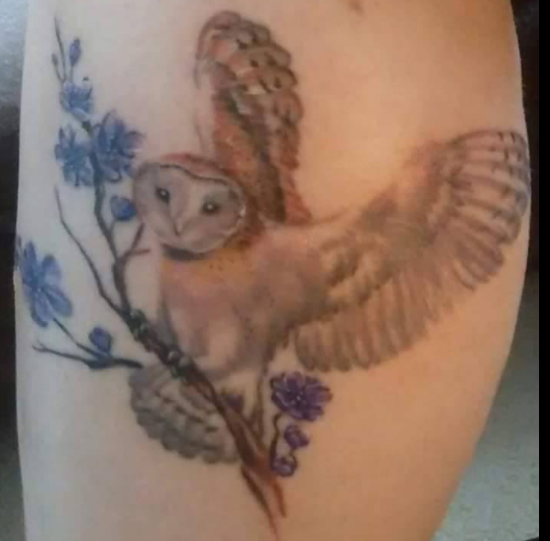Exploring the Future of Tattoo Art: Innovations and Trends
Written on
Chapter 1: The Evolution of Tattooing
Have you ever contemplated the future of tattoo artistry? This article is part of an ongoing series exploring various future themes. If you have a specific topic in mind, feel free to share, and I'll consider it for future research.
As I've mentioned before, I have a few tattoos (including one featured in the image above). Although I only have three, my indecisiveness and apprehension about their permanence have held me back from getting more. I have countless ideas for tattoos, ranging from nature and space to quotes and books, all saved on my Pinterest board. This led me to ponder: what innovations lie ahead for tattooing?
Tattooing has a long history, with roots tracing back as far as 3017 BC. While the basic process has remained relatively unchanged—using ink to puncture the skin—the methods have evolved significantly. From manual tools to electric tattoo machines, we now even have battery-operated devices that allow for tattooing outside traditional studios. Recently, trends like incorporating cremains into tattoos and the emergence of ultraviolet inks have gained popularity. But what other advancements can we expect in the tattoo industry? If you're a tattoo enthusiast or just curious about this art form, grab a drink and join me in exploring the future of tattoos.
Tattoo safety is increasingly prioritized, with calls for regulation in various regions, including Spain. One exciting development is the creation of temporary tattoos designed to last one to five years. However, as these fade, they may not always maintain their aesthetic appeal.
Glow-in-the-dark or UV tattoos have been around for a while, glowing under blue light, making them popular among nightlife enthusiasts. Interestingly, many conventional inks also fluoresce under blue light. However, inks containing phosphorous have raised health concerns, leading some shops to avoid them due to the potential for body rejection.
Next, we have biosensitive tattoos, which are still in development. These tattoos can change color to signal high or low glucose levels, potentially aiding diabetics. The future may hold even more health-monitoring possibilities with biosensitive inks, but for now, they remain in the experimental stage.
A robotic tattoo artist has been developed by a French company, transforming a 3D printer into a tattoo machine that adapts to skin contours for superior designs. Additionally, electronic tattoos equipped with circuits and lights are being utilized mainly in the medical field to monitor vital signs.
Soundwave tattoos are another innovative concept. These tattoos can be scanned using a smartphone to play a short audio clip, allowing you to preserve meaningful sounds, like a child's first words, paired with the Skin Motion app. Only select artists in the U.S. currently offer this unique service.
Social media platforms like Instagram have revolutionized the tattoo industry, making diverse designs globally accessible and inspiring artists to draw from a wider range of styles.
Advancements in tattoo removal technology have also improved significantly. Modern laser treatments can vaporize ink in mere picoseconds, allowing the body to naturally eliminate it, leaving behind healthy skin. The future of removal may soon include femtosecond lasers, which could remove tattoos in a single session.
The tools artists use have transformed too; instead of traditional lightboxes and tracing paper, many now design on tablets using apps like Procreate. This technology streamlines the process, enabling artists to make real-time modifications and visualize designs on clients through augmented reality.
Do you have any tattoos? I’m passionate about this art form and would love to hear about your experiences or any designs you're considering! My indecisiveness often leaves me pondering my next tattoo design.

Chapter 2: Insights from the Tattoo Community
In the video titled "Sh*t People Say To Tattooed People | INKED," various humorous and common misconceptions about tattooed individuals are explored. This provides a lighthearted look at the societal perceptions surrounding tattoos.
The second video, "'When I Started Getting Tattooed I Started Feeling Like Myself' Aidan | Heavily Inked," shares personal stories from individuals who feel empowered and more authentic through their tattoos. It highlights the emotional connection many have with their body art.
References: